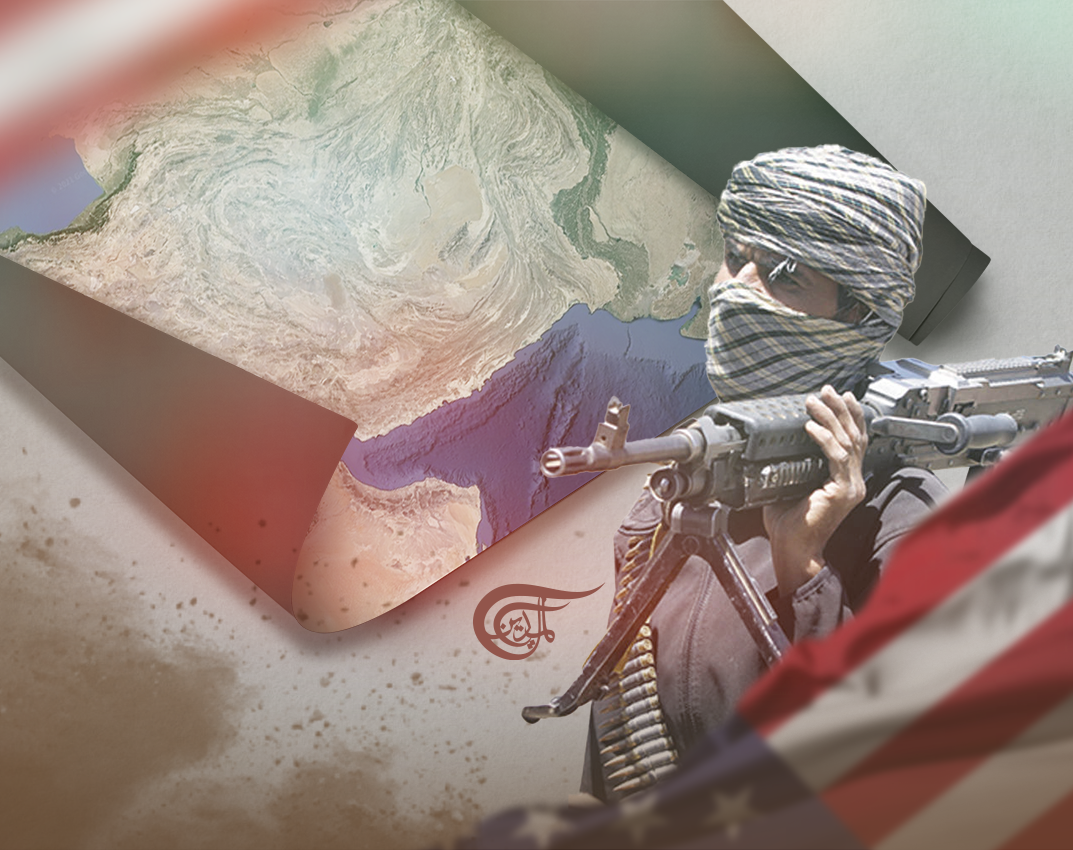Geopolitics of Shia
Correct evaluation of geopolitical timing is crucial
With the panic that followed the US withdrawal from Afghanistan, it is clear that we live already in a multipolar world. The unquestionable unipolar leadership of the West belongs to the past. The emergence of multipolar order is already a fact. That is a high time to revise the main players – present and future, global and regional. In the transitional phase, many unthinkable things of yesterday, become possible. It is the beginning of a global emergency situation – Ernstfall/ Emergency (C.Schmitt). Old doors are closed, old roads exploded, old walls destroyed. It is a moment to think boldly and to act swiftly. The shape of establishing multipolarity depends on us; it will be exactly as we intend to shape it: the world of our making (N.Onuf).
Let us consider the Shia world. It is an important part of Islamic territory. The victory of the Taliban concerns it deeply in many ways. The proximity to Iran, the Shia Hazaras minority, the brusque change of balance of power (the US withdrawal) in the region, the new role of Pakistan, China and Russia – all that affects Shia community. It creates new challenges, new risks and new opportunities.
Shia geopolitically should be regarded as Großraum (big space). The heartland of the Shia world is Iran and partly the Southern part of Iraq. It extends to the East (Pakistan, Afghanistan), to the North (Azerbaijan), to the West (Hussites in Yemen, Shia in Syria, Bahrein, Saudi Arabia, Kurdistan, Hezbollah in Lebanon bordered by Palestine). We shouldn’t forget some less orthodox branches of Ghulat Shia – Alawite in Syria, Alevites in Turkey, Ismaelites in Tajikistan and India. There are Shia communities in West Africa (Nigeria) and elsewhere.
First of all, we need to mention that the Shia world is a kind of network: It has a Heartland (Iran), a stronghold (Iraq and Hezbollah) and branches of the network – with some special regions of territorial control in Yemen and somewhere else. It is time to think about all this asymmetric structure with ethnic, sectarian and historic differences as a whole. Such strategic thought existed during Imam Khomeini era and on the eve of the July Revolution among the clerics of Iraq and Qom. During the last decades, this strategy was in decline; now it is the appropriate moment to restore it.
Shia Großraum possesses very special features. In geopolitics, it seems to be very anti-Western and anti-liberal. That is not only the part of the message of Iranian Revolution leader Imam Khomeini, but an existential part of deep Shia identity. Shia is a revolutionary religious tendency that is very sensitive to the oppression and colonial attitude of the modern West. The same sensibility is detected in Shia’s relationship with Palestinians: Shia is quite intolerant towards the Israeli occupation of Palestine and is one of the main drivers of the Middle East Resistance block.
The theological identification of Al-Dajjal (the Deceiver) with the capitalist-imperialist West is the essential feature of Shia political mentality. It is not just an ideological component; it is the organic part of the main doctrine. Hence, the geopolitical optics shifts in the Middle East and elsewhere.
Considering this, it is clear that for the whole Shia community the clear attenuation of Western hegemony exemplified in the withdrawal of the US and its collaborationists from Kabul – with poor American servants falling down from the plans – is the chance to reaffirm its position filling the void everywhere it occurs.
It is an easy goal to achieve because of Raisi's presidency in Iran itself, considering the growth of the power of conservative Shia clerical groups in government.
So Shia can seize the opportunity to reinforce its attacks: It is called the “fill-the-gap strategy”.
Where this principle can be applied?
First of all, in Iraq. Panic flight from Kabul is the picture that can be – and should be – repeated in Iraq. It is not only a question of an American will. It depends moreover on the decisiveness of the Iraqi people to end definitively the occupation. The main obstacle here is not the American decision – to stay or not to stay - but rather the absence of a viable picture of the future. The Americans in Iraq are still tolerated only because there is no consensus between Iraqi Shia among themselves, and problematic pattern of their relation with Sunni and Kurds. The US serves now as a kind of balance that is pragmatically useful for all. But with their clear decline, it comes to an obvious end. To flight from Afghanistan and to grasp Iraq would be a suicidal move and will only provoke a future escalation of anti-Americanism in the region. So they should have quit sooner or later, rather sooner than later.
Shia should be prepared for this. Their future in Iraq depends on their behavior in respect of the American withdrawal process. If they stay away and show passivity, other powers will act instead; this issue should be considered seriously.
But the most important for Shia in Iraq is to have a plan for the future. For now, they lack a future vision, following instead more or less opportunist politics. If Americans leave Iraq, they will try not to give the country a chance for a normal State-building process. Why? It is easy to explain: to promote separatism among Kurds, to ignite the Sunni/Shia hostilities, and to divide competing Shia fractions. They do it already now, but in some limits, it seems obligatory for them to stay. When you leave you can slam the door. Just in the face of Shia. So there is almost no time left to think with all the responsibility.
Second, there is the Resistance in Syria and Lebanon that stands in direction of Palestine. If Americans are ousted from Central Asia, would this affect the aid to “Israel” too? If yes, it is the right moment to start Resistance mobilization. Or would it be better to wait a bit, and only then to decide? It is up to Shia strategists to decide. But that is serious. Correct evaluation of geopolitical timing is crucial.
Next challenge: How American withdrawal would affect Shia-Sunni relations? It is clear that the victory of the Taliban is almost a fully Sunni achievement. It cannot be claimed by Turks and hence Muslim Brotherhood (because of Turkey's NATO membership). But Saudi and Egypt are rather gainers as other Salafi groups. They are considered hostile camps by Shia. This factor can affect negatively Shia Großraum giving the Salafi strategy a second chance. It would be quite logical, if Americans are ousted, they will certainly use the Salafi factor once more. The orientation of ex-enemies against other enemies is just natural and logical for the USA. So Shia would be a possible goal in that game turn. That affects not only Hazaras but as well the Hussites, the balance of power in Syria, but also the core of the Shia world – Iraq and Iran themselves.
Let us be clear: In Afghanistan, main gainers are precisely radical Sunni with Salafi-Sufi roots (the Wahdat-al-Shuhud tendency –not Wahdat al-Wujjud). Now they are over anti-Americans and will stay so for a certain time; however, they were previously supported and armed by the CIA and were used against other enemies of the US – Soviets, secular regimes (such as Baathists) and Iran.
So we have here a fertile ground for rapprochement between Shia and Sunni – anti-Americanism. A common enemy is a great thing in politics, maybe the greatest thing.
The same situation is valid for geopolitical balance in the Middle East. US withdrawal would be the best solution for Washington to leave Al-Fitna (discord) behind – a bloody civil war between Shia and Sunni that would harm both sides. For “Israel” that would as well be the best issue – almost the unique way to delay the final demise. So we need to think about how to avoid this scenario.
Here, Shia has different ways to explore. Turkey with its Ottoman dreams will be always considered a self-centered player, seen with certain mistrust by most Arabs. So joining efforts with Turkey and using cleverly the Alevite factor and ethnic affinity of Iranians with Kurds, Shia can easily establish regional partnership; or it can use opposite tactics trying to improve its relations with Arab Sunni regimes that are feeling threatened by Ankara widening. This way is already tested by Teheran-Doha relations.
Pakistan is another option. Traditional disaccord with Islamabad – Sunni, partly Salafi and pro-American – loses in present situation its reasons. Islamabad is approaching more and more China and Russia, trying to secure its place in a multipolar club. Theoretically, it is more than ever inclined to revise its regional position without any regard to the West. Pashtuns in such conditions can cause some problems to Pakistan itself, so Islamabad can choose some kind of cooperation with Shia and Iran, in particular, in joining the efforts on the regional scale.
On the global scale, Shia Großraum and its ramification in the network should define its place in a multipolar context in general. It is a necessity for Shia survival – to secure its space as an independent and more or less, a unified part of the Islamic civilization. That means accepting the role of the Shia pole inside the Islamic – broader – pole, and this is not too dangerous because of the multipolar structure of Sunni Islam itself. There will be always enough contradictions and rivalries between the Sunni themselves – Turkey, Arab countries of the Middle East, Maghrib, Pakistan and the Indonesian region – that give Shia the possibility to save its independence. But all that should be inscribed in the main structure of emerging multipolarity. And now when its features and boundaries are not yet clearly defined and fixed, it is the right moment to state general claims – to formulate the geopolitical vision in the main frame of a polycentric world order.
Russian and Chinese factors are the main geopolitical pillars of multipolarity. The Russian-Shia alliance has already demonstrated its efficacity in Syria. The rapprochement with Russia can be extremely important in the general frame of Shia geopolitics. It could affect many regional issues – Palestine, Yemen, Afghanistan, Caucasus, Central Asia and so on.
On the other hand, Shia territories and networks are an integral part of the Chinese Belt & Road Initiative. So China is another key partner.
(Almost) everybody in the Islamic world, Russia and China are existentially interested in limiting, if not, stopping the Western (American) unipolar hegemony. So there is a chance to reinforce Shia Großraum – in a physical and virtual way – joining the multipolar trend, so clearly defined with the American withdrawal from Afghanistan.
In the perspective of Shia eschatology, the prevailing situation can be regarded as an extremely important sign of the approaching moment of Zuhur (the appearance of Imam Al-Mahdi, the eschatological redeemer of Islam).

 Alexander Dugin
Alexander Dugin
 10 Min Read
10 Min Read












